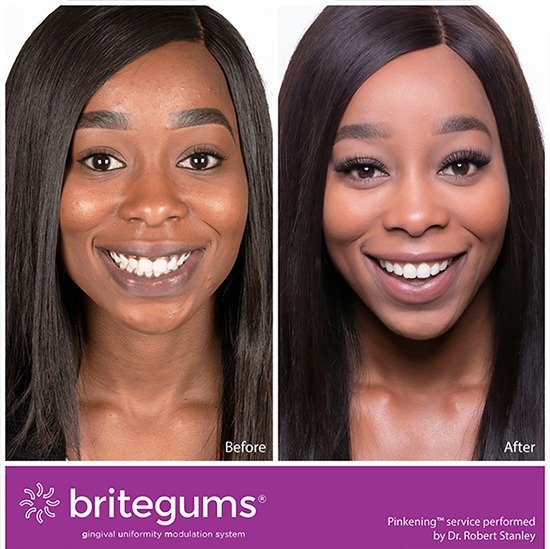Treatment Of Black Gums

Black gums, also known as melanin pigmentation or racial pigmentation, are a common phenomenon where the gums appear darker than usual due to the presence of melanin. This condition can be caused by a variety of factors, including genetics, smoking, medication, and hormonal changes. While black gums are generally harmless, they can be a cosmetic concern for some individuals. In this article, we will explore the causes, symptoms, and treatment options for black gums.
Causes of Black Gums
- Genetics: Melanin pigmentation is more common in people with darker skin tones, as they have more melanin in their bodies. This means that individuals with African, Asian, or Middle Eastern ancestry are more likely to have black gums.
- Smoking: Smoking can cause an increase in melanin production, leading to darker gums. This is because tobacco contains chemicals that stimulate the production of melanin.
- Medication: Certain medications, such as minocycline, can cause an increase in melanin production, leading to black gums.
- Hormonal changes: Hormonal fluctuations during pregnancy or menopause can cause an increase in melanin production, leading to darker gums.
- Poor oral hygiene: Poor oral hygiene can lead to the accumulation of plaque and bacteria on the gums, which can cause inflammation and darken the gums.
Symptoms of Black Gums
The symptoms of black gums can vary from person to person, but common symptoms include:
- Darkening of the gums: The gums may appear darker than usual, ranging from a light brown to a deep black color.
- Patchy discoloration: The discoloration may be patchy, with some areas of the gums appearing darker than others.
- Gingivitis: Black gums can be a sign of underlying gingivitis, which can cause inflammation, bleeding, and sensitivity.
- Bad breath: Poor oral hygiene can lead to bad breath, which can be a symptom of black gums.
Treatment Options for Black Gums
While there is no cure for black gums, there are several treatment options available to reduce the appearance of dark gums. These include:
- Scaling and root planing: This is a deep cleaning procedure that removes plaque and bacteria from the gums, helping to reduce inflammation and discoloration.
- Gingivectomy: This is a surgical procedure that involves removing excess gum tissue to reduce the appearance of black gums.
- Laser treatment: Laser treatment can be used to reduce the appearance of black gums by targeting the melanin in the gums.
- Dental veneers: Dental veneers can be used to cover up dark gums, providing a more aesthetically pleasing smile.
- Hydrogen peroxide treatment: Hydrogen peroxide can be used to lighten the gums, but this should only be done under the supervision of a dentist.
Home Remedies for Black Gums
In addition to professional treatment, there are several home remedies that can help to reduce the appearance of black gums. These include:
- Maintaining good oral hygiene: Brushing and flossing regularly can help to remove plaque and bacteria from the gums, reducing inflammation and discoloration.
- Using a whitening toothpaste: Whitening toothpaste can help to gently lighten the gums over time.
- Avoiding smoking: Quitting smoking can help to reduce the appearance of black gums by reducing the amount of melanin produced in the body.
- Eating a healthy diet: Eating a diet rich in fruits, vegetables, and whole grains can help to promote healthy gums and reduce inflammation.
FAQs
What causes black gums?
+Black gums can be caused by a variety of factors, including genetics, smoking, medication, and hormonal changes.
How can I reduce the appearance of black gums?
+There are several treatment options available to reduce the appearance of black gums, including scaling and root planing, gingivectomy, laser treatment, and dental veneers. Maintaining good oral hygiene, using a whitening toothpaste, and avoiding smoking can also help.
Can black gums be a sign of an underlying condition?
+Yes, black gums can be a sign of underlying conditions, such as gingivitis or periodontal disease. It's essential to consult with a dentist to rule out any underlying conditions.
In conclusion, black gums can be a cosmetic concern for some individuals, but they can also be a sign of underlying conditions. By understanding the causes and symptoms of black gums, individuals can take steps to reduce their appearance and promote healthy gums. Whether through professional treatment or home remedies, there are several options available to help individuals achieve a healthier, more aesthetically pleasing smile.
